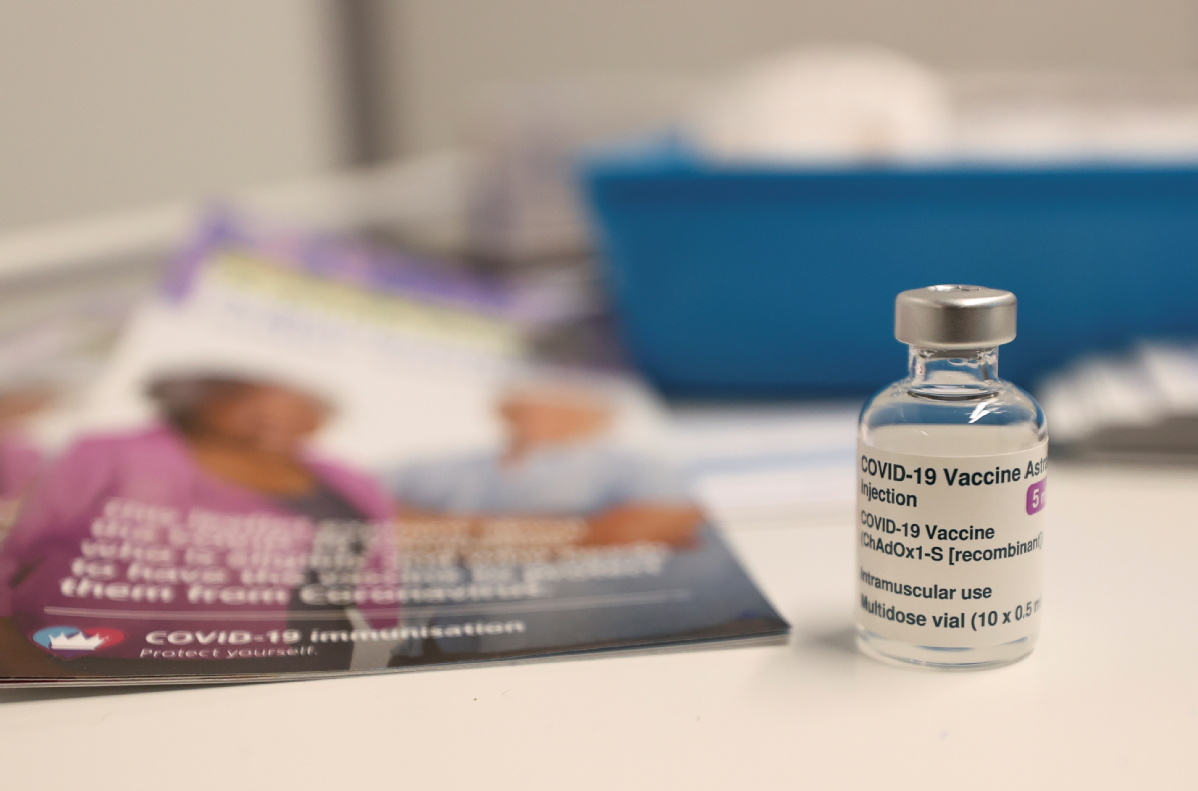Novel coronavirus vaccine 'may become annual shot'


The deputy chair of one of the United Kingdom's leading expert bodies on vaccinations has said the evolving nature of the novel coronavirus could mean that people end up having to have annual immunization, in a similar way to how flu is treated.
Speaking on Sky News, Anthony Harnden, from the Joint Committee on Vaccination and Immunisation, called the new strains of the virus in Brazil and South Africa “a real worry” and said that annual treatment may be the only way for the problem to be dealt with effectively.
"We are living in a world where coronavirus is so prevalent and rapidly mutating there are going to be new variants that pop up in all sorts of different countries," he said. "We may well be in a situation where we have to have an annual coronavirus vaccine much like we do with the flu vaccine."
But he assured the public that vaccines were easy to "edit and tweak" and modifying existing ones could be a major weapon in the fight.
"Once we find strains that are predominant, the vaccines can be altered," he said.
"These vaccines we are delivering at the moment do seem to be effective against the major circulating strains and the variant strains in the UK at the moment."
Meanwhile, opinion still seems to be divided in the medical establishment over how long the gap between the first and second vaccination shots should be.
Previously, the government's chief medical advisor, Chris Whitty, had said the decision to extend the gap from a maximum of three weeks to 12 was a "public health decision" to ensure that the maximum number of people were given at least partial protection. But now some leading doctors have written to him, calling for the gap to be reduced.
A letter from doctors' union the British Medical Association said its members supported the speediest possible roll out of the vaccine, but expressed concern over the gap.
The UK's strategy, the letter said, "has become increasingly isolated internationally" and "is proving evermore difficult to justify … the absence of any international support for the UK's approach is a cause of deep concern and risks undermining public and the profession's trust in the vaccination program".
By Friday evening, more than 5.8 million people in the UK had received at least one dose of the vaccine, with the highest number given in one day so far being 478,248.
Figures published on Saturday showed another 1,348 deaths within 28 days of a positive novel coronavirus test, bringing the UK death toll to more than 97,000.
Health Secretary Matt Hancock says that case numbers and the daily death toll are still so high as to make any easing of the lockdown remain a distant prospect.
"There is early evidence that the lockdown is starting to bring cases down but we are a long, long, long way from being low enough because the case rate was incredibly high," he told Sky News.
In Italy, Prime Minister Giuseppe Conte has warned vaccine manufacturer AstraZeneca that the company could face legal action after it was revealed that Italy's dose of vaccines in the first quarter of the year, received through the European Union’s bloc-wide procurement program, would be just 3.4 million doses, rather than the expected 8 million. Italy has already threatened legal action against BioNTech/Pfizer over a similar supply issue.
EU countries had expected 100 million doses of the AstraZeneca vaccine in the first quarter, but the company then said unspecified complications at the manufacturing plant would lead to a smaller amount.
"These delays in deliveries are serious contractual violations, which cause enormous damage to Italy and other European countries with direct effects on the lives and health of citizens, and on our economic and social fabric already severely tested by a year of pandemic," Conte wrote on Facebook.
Italy, along with Spain, was one of the first countries in Europe to be hit by the virus when the pandemic began last spring. So far 1.3 million Italians have been vaccinated, and 1.2 million people in Spain.

































